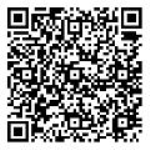角色楷模課程對高中數理資優女生性別角色、生涯自我效能與生涯發展影響之研究
作者:于曉平(國立臺中教育大學特殊教育學系)、林幸台(國立臺灣師範大學特殊教育學系)
卷期:55卷第1期
日期:2010年3月
頁碼:27-61
DOI:10.3966/2073753X2010035501002
摘要:
本研究探討角色楷模課程之實施對高中數理資優女生性別角色、生涯自我效能與其生涯發展的影響,並嘗試進行理論的驗證。本研究以自編的角色楷模課程進行教學實驗,並以自編之「高中女生性別角色與發展量表」進行施測,嘗試透過角色楷模課程的介入,瞭解其對數理資優女生性別角色、生涯自我效能與其生涯發展的影響與變化,透過22週的課程後調查與追蹤發現,角色楷模課程對數理資優女生性別角色、生涯自我效能與生涯發展雖有所提升,但並無顯著影響,不過從學生課程中所寫之心得分析發現,角色楷模課程對學生性別角色態度的覺知、生涯自我效能的提升與生涯發展方向的確認與瞭解都有正向的幫助,之後並進行追蹤瞭解後續的影響。此外,配合Bandura(1977)所提出之自我效能理論加以驗證,以瞭解成就、角色楷模、情緒、支持與生涯自我效能的關聯,並提出教育與研究上的建議。
關鍵詞:生涯自我效能、生涯發展、角色楷模課程、性別角色、數理資優女生
 《詳全文》
《詳全文》

Journal directory listing - Volume 55 (2010) - Journal of Research in Education Sciences【55(1)】March
The Effects of a Mentoring Curriculum on Gender Roles, Career Self-Efficacy, and Career Development in a High School Class for Gifted Girls in Math and Science
Author: Hsiao-Ping Yu(Department of Special Education, National Taichung University),Hsing-Tai Lin(Department of Special Education, National Taipei University of Education)
Vol.&No.:Vol. 55, No. 1
Date:March 2010
Pages:27-61
DOI:10.3966/2073753X2010035501002
Abstract:
This study examined a mentoring curriculum to understand its influences on gender roles, career self-efficacy, and career development choices in adolescent girls who were students in a senior high school class for gifted students in math and science. After the 22-week curriculum, it found that the mentoring didn’t have a significant influence on the girls’ gender roles, career self-efficacy, or career development. However students indicated that the curriculum helped them to be more aware of gender roles, and they better knew how to promote career self-efficacy, and to better plan their future career development. Techniques taught in the curriculum to improve self-efficacy were viewed as beneficial. According to the above findings, there were some suggestions proposed for readers.
Keywords:career self-efficacy, career development, mentoring curriculum, gender roles, gifted girls in math and science